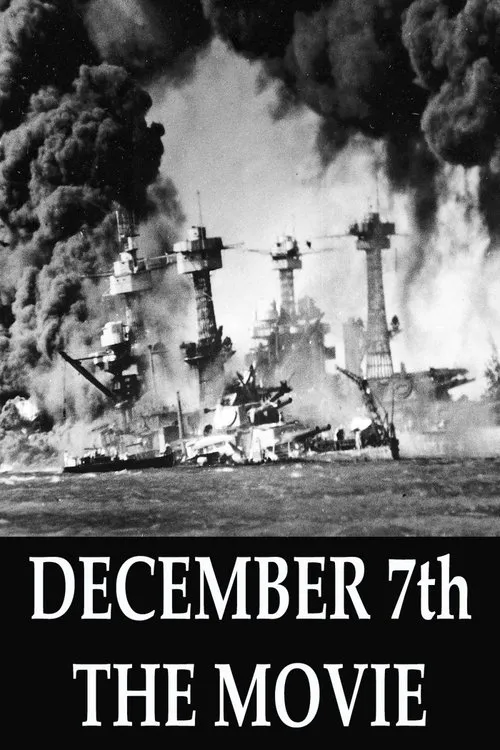December 7th

Plot
December 7th, a docudrama about one of the most pivotal moments in American military history, serves as a poignant and visceral retelling of the events surrounding the infamous bombing of Pearl Harbor on December 7th, 1941. The film delves deep into the aftermath of the surprise attack, exposing the complexities and struggles that arose as the United States attempted to pick up the pieces and rebound from one of its worst defeats. The movie opens with a stunning recreation of the attack itself, skillfully interweaving reenactments with first-hand testimony from those who were there on that fateful day. The sounds of explosions, the cries of the wounded, and the eerie silence that followed the chaos serve as a stark reminder of the human toll and devastating consequences of the attack. The narrative then shifts to the recovery efforts, as sailors, soldiers, and civilians worked tirelessly to salvage what was left of the destroyed ships and restore the damaged facilities. The scenes of mangled wreckage, oil-slicked waters, and the desperation etched on the faces of the survivors all contribute to a sense of devastation and despair that pervades the film. As the Americans struggled to come to terms with their loss, the movie highlights the growing sense of unease and vulnerability that spread throughout the islands. The once-peaceful Pearl Harbor, a symbol of American military strength and security, now stood as a stark reminder of the nation's vulnerability to attack. The film also touches on the improvements made to Hawaii's defenses, as the military scrambled to bolster its defenses and fortify its positions to prevent future attacks. The scenes of hastily erected pillboxes, barbed wire, and fortified gun emplacements serve as a testament to the determination of the American forces to prevent a recurrence of the disaster. Beyond the immediate aftermath, December 7th also explores the larger strategic implications of the attack. The Japanese, emboldened by their decisive victory, began to pour troops and equipment into the Pacific, intent on expanding their empire and securing vital territories. The United States, meanwhile, was forced to reassess its priorities and respond to the growing threat. The movie delves into the intricate web of politics and decision-making, as President Franklin D. Roosevelt and his advisors grappled with the implications of the attack and the need to escalate the war effort. The scenes of heated debates, secret meetings, and diplomatic intrigue all serve to humanize the leaders and add a layer of complexity to the narrative. Throughout the film, the survivors' testimonies and personal stories are woven throughout the narrative, providing a poignant and intimate perspective on the events. The accounts of sacrifice, courage, and resilience serve as a powerful reminder of the human cost of war and the enduring spirit of those who fought to defend their country. As the war in the Pacific escalated, the movie ultimately concludes on a note of hope and determination. The survivors of Pearl Harbor, though forever changed by the experience, stood as a testament to the nation's indomitable will to overcome even the most daunting challenges. The film serves as a powerful tribute to their courage and resilience, and a reminder of the enduring legacy of that fateful day in December. With its meticulous attention to detail, visceral reenactments, and powerful storytelling, December 7th stands as a powerful and poignant tribute to the men and women who were forever changed by the events of that fateful day. The film serves as a reminder of the human toll of war and the enduring power of the human spirit in the face of adversity.
Reviews
Recommendations



